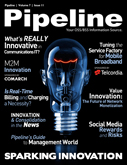|
|

article page
| 1
| 2
| 3
| 4
| 5
On the mobile side, I can’t access anything about T-Mobile, other than some high level profile information, through the Facebook iPhone app. This makes sense to the extent that as an iPhone user, I’m clearly not a T-Mobile customer. But what if I wanted to learn more about their new phones, or buy something from them? I can’t do it through Facebook; even the link to their site from the iPhone app profile page goes to a broken link. I’d call that a barrier too.
From the Horse’s Mouth
After contacting T-Mobile for comment, Daniel Anderson, Emerging Media Manager for T-Mobile USA responded – perhaps appropriately – via email. He says that the company receives “tens of thousands of messages every day” and that “about 15% (sic) of all comments mentioning T-Mobile on Twitter are questions about our products and services.” What’s the other 85 percent? Well, let’s say there are a lot of critics and haters out there, along with some fans.
|
|
If Facebook, or any social media outlet, is a customer interaction channel, then it should be managed just like any other customer interaction channel. |
|

 Untamed Risks in Social Channels
Untamed Risks in Social Channels
There appears to be more risk for operators in what they are not doing in social media channels than in what they are. There are hundreds of unofficial Facebook groups and profiles that incorporate the names AT&T Wireless and T-Mobile, and in many cases their logos and corporate boilerplate. There are many hate groups; groups and profiles that exist for no other reason than to vent rage against the operators. A third group consists of authorized resellers, and this bears some special attention.
Dozens of resellers just call themselves
“AT&T Wireless,” for example, and don’t
redirect the hundreds of fans
commenting on their walls who have
mistaken them for AT&T Inc. Many of
|
|
|
|
|

Anderson explains that T-Mobile has “a team dedicated to responding to online conversations” which is expanded during peak times. He says the social media team was doubled during the company’s Valentine’s Day promotion “just to keep up with the volume of fan questions.” That team seems to be pretty quiet in the face of the anti-AT&T onslaught, but there is evidence of it responding to serious customer inquiries. He also says that the team does “proactively search for and respond to comments about our products and services” outside of T-Mobile’s own social media sites because “it is important for us to show our customers, and potential customers, that we value their feedback.” Tell that to Tara Brown.
Anderson admits that self-help videos on YouTube are intended to help “offset the need for customers to contact our other support channels” and says that its community forums are a good “self-help resource for customers looking for quick answers to common questions.” He adds that “T-Mobile reaches about 140 million people every month through the cumulative reach of our social media efforts,” but provided no further basis for that estimate. It sounds a bit like fuzzy math. If you reach 140 million people, and you’ve only gathered about 300,000 “likes” and Twitter followers, I’m not sure that makes your success metrics sound all that strong. Regardless, T-Mobile is trying to be creative in using social media to support customers, and deserves some credit for that forethought and for delivering a solid online experience.
|
|

them use corporate logos as their
profile pictures, rather than
appropriate reseller logos. Some
resellers identify themselves as such,
but fail to use properly authorized
logos. And, there is no consistency in
how resellers present themselves or
communicate with customers on their
Facebook pages. T-Mobile suffers from
the same set of problems. Assuming
the acquisition goes through, its
problem will only compound AT&T’s.
These issues are “not acceptable and controls need to be put in place to police the risks around social media,” says Alex Leslie, communications industry analyst and founder of the Global Billing Association. He warns, however, that “companies need to be careful not to simply try and crush the revolution with too many rules and regulations.” Given that we have seen social media “cause revolutions in the Middle East” and “start campaigns against policies and politicians” with “an honesty that the establishment finds alarming,” says Leslie, risk management practices should comprise constructive dialogue with business partners rather than wading into no-win situations with critics.
If Facebook, or any social media outlet, is a customer interaction channel, then it should be managed just like any other customer interaction channel, any of which may contribute to a customer’s end-to-end experience. Retailers have to follow rules and policies in their stores in regards to logos, devices they sell, promotions they offer, and how they use the parent company’s trademarks. But these rules either don’t apply, or aren’t being enforced, on Facebook.
article page
| 1
| 2
| 3
| 4
| 5 |
|
|





